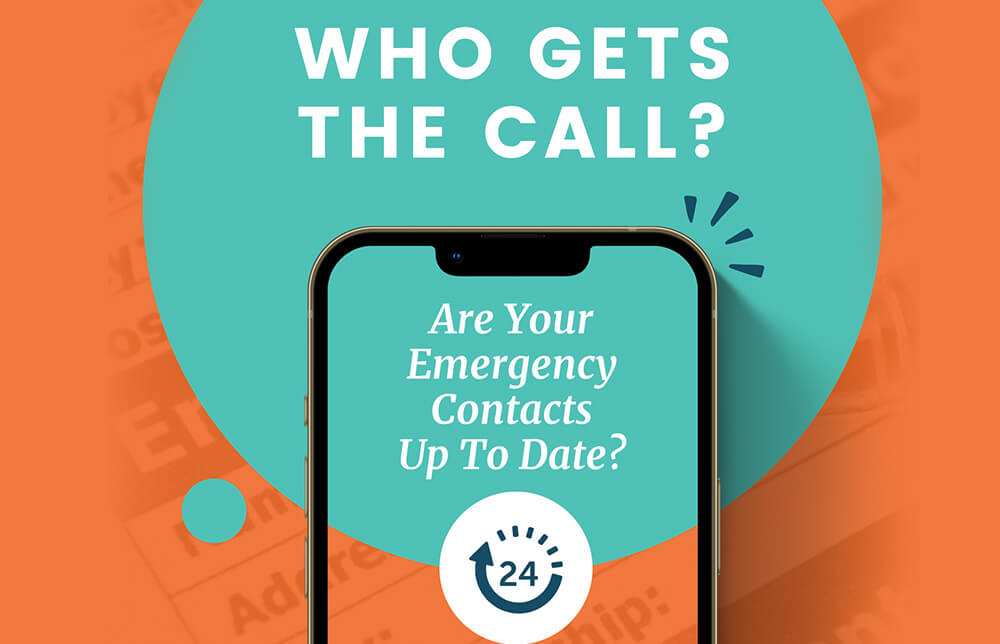Having a plan in place for unexpected situations is crucial for everyone. A vital part of this plan involves designating emergency contacts who can step in and make important decisions on your behalf if you’re unable to do so. These individuals will be your lifeline in times of crisis, ensuring your loved ones are informed and your wishes are respected.
This article will guide you through the process of choosing the right emergency contacts, exploring various relationship options and factors to consider. We’ll delve into the roles of family members, friends, neighbors, and colleagues, helping you make informed decisions to safeguard your well-being and peace of mind.
Emergency Contacts
Emergency contacts are individuals you designate to be notified and act on your behalf in case of an emergency. This could involve anything from a medical crisis or accident to a natural disaster or personal incapacitation. Having these contacts readily available ensures that someone you trust knows what to do and can provide support when you need it most.
It’s essential to choose individuals who are reliable, responsible, and readily accessible. They should be able to make sound judgments, communicate effectively, and follow your instructions. Clearly stating your wishes and preferences to your emergency contacts beforehand can significantly ease the burden on them during a stressful situation.
Choosing the Right People
Selecting the right emergency contacts is a personal decision based on your individual circumstances, relationships, and trust levels. Consider the following factors when making your choices:
- Availability: Choose individuals who are generally available and responsive, especially during emergencies.
- Reliability: Select people you trust implicitly to act in your best interests and follow your instructions.
- Decision-making abilities: Ensure your contacts can make sound judgments and handle difficult situations calmly and effectively.
- Communication skills: Choose individuals who can communicate clearly and concisely with medical professionals, authorities, and your loved ones.
- Location: Consider the proximity of your contacts to you or your usual whereabouts.
Family Members
Family members are often the first choice for emergency contacts due to their inherent closeness and understanding of your needs.
Parents or Siblings
If you have close relationships with your parents or siblings, they can be invaluable sources of support in an emergency. They likely know your medical history, preferences, and important contacts.
Spouse or Partner
Your spouse or partner is another crucial emergency contact relationship option. They are often deeply involved in your life and can make decisions aligned with your wishes.
Children
If you have children, consider designating trusted individuals as their emergency contacts in case you are unable to care for them. This could include grandparents, aunts, uncles, or close family friends.
Friends and Neighbors
While family members are often the primary choice, close friends and neighbors can also serve as reliable emergency contact relationship options.
Close Friends
Friends who are deeply invested in your well-being and know you well can provide emotional support and practical assistance during a crisis.
Neighbors
Neighbors can be particularly helpful in local emergencies, such as fires or natural disasters. They may be able to offer immediate assistance or keep an eye on your property.
Colleagues
In certain situations, colleagues can be valuable emergency contact relationship options.
Supervisor or Manager
Your supervisor or manager can be contacted in case of a work-related emergency or if you are unable to reach your family or friends.
Trusted Coworkers
Close colleagues who know you well and are reliable can also be designated as emergency contacts.
Conclusion
Choosing the right emergency contacts is a crucial step in ensuring your safety and well-being. By carefully considering your relationships, needs, and circumstances, you can select individuals who will be there for you when you need them most. Remember to communicate your wishes clearly to your chosen contacts and update your information regularly to reflect any changes in your life. Taking these steps can provide peace of mind knowing that you have a support system in place to handle emergencies effectively.



